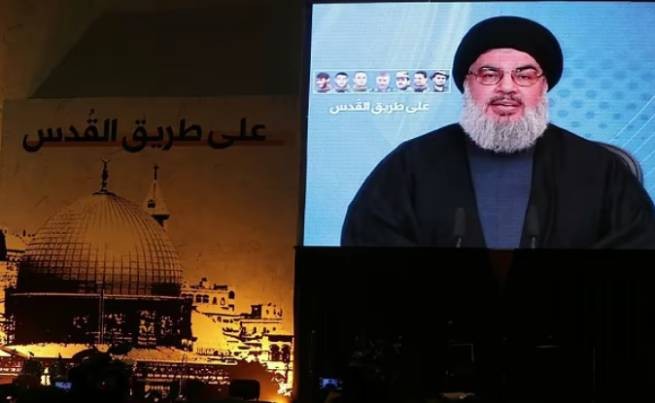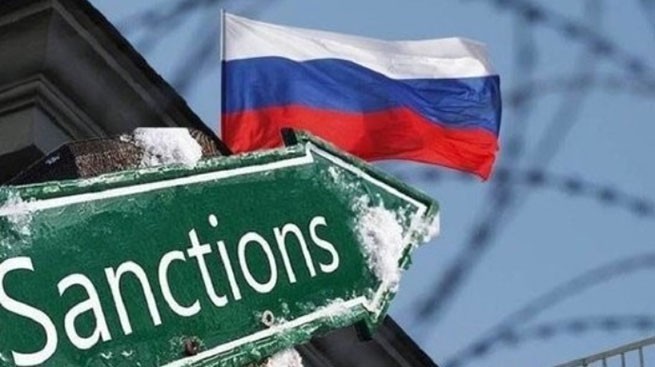EU countries (EU) approved the 14th package of sanctions against Russia. This became known on June 24 from a document adopted after a meeting of the EU Council.
The new package includes restrictive measures against an additional 116 individuals and legal entities responsible for actions that undermine or threaten the territorial integrity, sovereignty and independence of Ukraine, as well as the following sectoral measures:
Energy
In order to prevent the use of EU facilities for transshipment of Russian LNG to third countries and thereby reduce Russia's significant income from its sale and transportation, the EU will ban transhipment services for Russian LNG in the EU. This applies to both ship-to-ship and ship-to-shore transhipments, as well as transhipment operations, and does not affect imports, only re-exports to third countries through the EU. The European Commission will monitor the implementation and development of this decision and, if necessary, may propose mitigation measures.
In addition, the EU will prohibit new investments, as well as the provision of goods, technologies and services for the completion of LNG projects under construction, such as Arctic LNG 2 and Murmansk LNG. Restrictions are being introduced on the import of Russian LNG through EU terminals not connected to the gas system.
Lifting sanctions
The EU has additional tools to combat sanctions circumvention. First, EU parent companies will be required to make every effort to ensure that their subsidiaries in third countries do not engage in activities that lead to the effects that the sanctions are intended to prevent.
Secondly, to address the problem of re-export of military-use goods located in Ukraine or of critical importance for the development of Russian military systems, it was decided that EU operators selling such goods to third countries must implement mechanisms capable of identifying them, and also assess the risks of re-export to Russia and reduce them.
In addition, EU operators transferring industrial know-how for the production of military-use goods to commercial partners in third countries must now include contractual provisions to ensure that this know-how is not used for goods destined for Russia.
Financing
The Council decided to prohibit the use of the Financial Messaging System (FMTS), a specialized financial messaging service developed by the Central Bank of Russia to counter the effect of restrictive measures. EU organizations operating outside Russia will be prohibited from connecting to SPFS or similar specialized financial messaging services. EU operators will be prohibited from transacting with listed entities using SPFS outside Russia.
In addition, the council introduces a ban on transactions with targeted financial institutions and cryptoasset providers established outside the EU if these organizations facilitate operations that support the Russian defense industrial base through the export, supply, sale, transfer of dual-use goods and technologies to Russia. sensitive items, battlefield goods, firearms and ammunition.
Financing of political parties and other organizations
In light of Russia's ongoing efforts to interfere in and undermine democratic processes in the EU, including through influence campaigns and the promotion of disinformation, the Council decided that political parties and foundations, non-governmental organizations, including think tanks or media service providers in the EU , will no longer be allowed to accept funding coming from the Russian state and its proxies.
In accordance with the Charter of Fundamental Rights, the measures agreed today will not prevent media service providers and their employees from carrying out other activities in the EU, such as conducting research and conducting interviews.
Transportation
For the first time, the EU has taken a measure against specific vessels, contributing to Russia's war against Ukraine, which are subject to a ban on access to the port and the provision of services, the council said in a statement. These vessels may be identified for a variety of reasons, including transporting military equipment for Russia, transporting stolen Ukrainian grain, and supporting the development of the Russian energy sector, for example by transporting LNG components or transhipment of LNG.
Additionally, to prevent other forms of circumvention, the council decided to extend the EU flight ban. The ban on landing, taking off or flying over EU territory will also apply to any aircraft, used for unscheduled flights, and in cases where a Russian person, organization or body can effectively determine the place or time of take-off or landing in order, for example, to get to a holiday destination or a business meeting. In addition, air carriers must provide any information requested by the national authorities of Member States in relation to unscheduled flights, including information on aircraft owners and possibly passengers.
It was also decided to extend the ban on the transport of goods by road across the EU, including in transit, to EU organizations that are 25% or more owned by a Russian individual or legal entity.
Import-export controls and restrictions
The Council added 61 new organizations to the list of those directly supporting Russia's military-industrial complex in its war of aggression against Ukraine. They will be subject to tighter restrictions on the export of dual-use goods and technologies, as well as goods and technologies that can contribute to the technological improvement of the Russian defense and security sector. Some of these organizations are located in third countries (China, Kazakhstan, Kyrgyzstan, Turkey and the United Arab Emirates) and are involved in circumventing trade restrictions by supplying sensitive items used, for example, in the production of drones, or providing material support to Russian military operations.
Protection of EU operators
The package also includes measures that will allow EU operators to claim compensation for damage caused by Russian companies as a result of sanctions and expropriation.
Other measures
Today's package of measures will introduce restrictions on the acceptance of applications for EU registration of certain intellectual property rights by Russian citizens and companies, to compensate for actions by the Russian government and courts that illegally deny holders of EU intellectual property rights protection in Russia.
Finally, the purchase, import, transportation or export of Ukrainian cultural property and other goods of archaeological, historical, cultural, rare scientific or religious significance will be prohibited if there are reasonable grounds to suspect that these goods have been illegally exported from Ukraine.







More Stories
Reuters about Mitsotakis’ hidden plans: “He will agree with Erdogan on the EEZ”
A personal doctor for every Greek citizen and a free pediatrician – we discuss a new bill
Hellenic Navy frigate Ψαρά returns to Greece after mission in the Red Sea